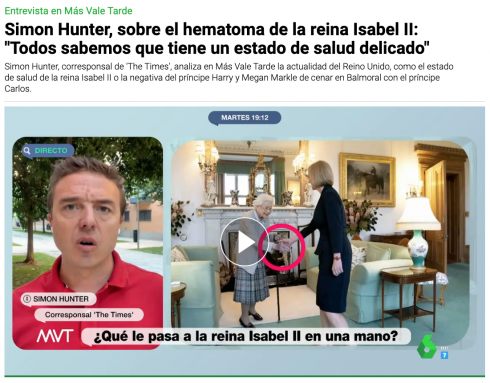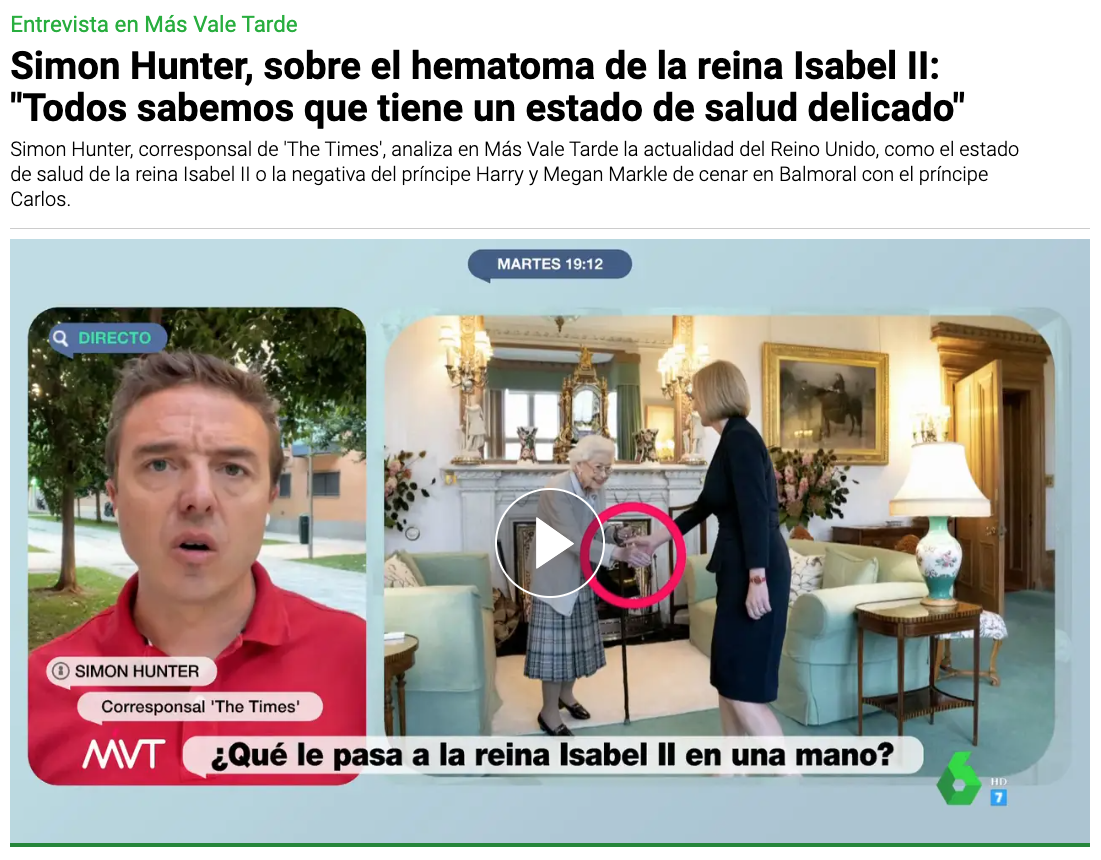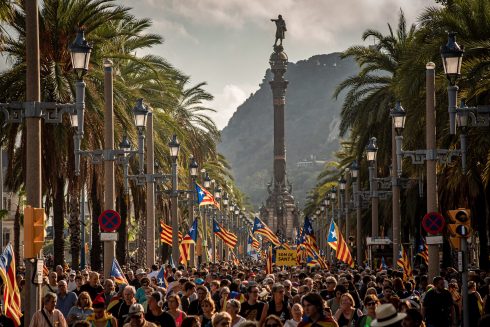On the day that Liz Truss became the United Kingdom’s new prime minister, I was expecting a call from Spanish TV channel La Sexta. Their evening current affairs show, Más Vale Tarde, has recently been coming to me for some live insights every time something crazy happens in my home country. I have been joking for months that a lot of work lies ahead for me…
And so it was that they called, to discuss via a Skype connection the handover of power from Boris Johnson to Truss. But in the end, we spent more time talking about Queen Elizabeth II, and that ominous bruise that was clear to see on her hand in the photos of her meetings with the politicians she met that day.
“We all know that the queen has a delicate state of health,” I told the presenters, using a phrase that would later become a headline on their website. Little could any of us have known at that moment just how delicate it was.
On Thursday they called again, after alarm bells were sent ringing by the ominous announcement by the Palace that there were concerns over the queen’s health, not to mention a clear protocol at the BBC swinging into action as schedules were rejigged and black ties donned.
I updated the program with the latest news once more via Skype, and then proceeded to drive home. Stuck in a typical Madrid traffic jam, I called my parents to bring them up to date and also test the mood back in England. Unusually, my mother had told me the news about the queen first – given my hopeless Twitter addiction, it’s normally the other way around. This was just another sign, for me, of how big a story this was going to be: one of those that when you hear it, you need to get in touch with your loved ones to talk about it.
And then it happened. In mid-conversation, the news alerts – first from Spanish media, then from the UK – started to ping on my phone. Just as my parents and I were speculating that the queen might have already died, there was confirmation of her passing. I told my parents. My mum burst into tears.
As I finished my journey home, I was able to listen to the brilliantly judged BBC TV broadcast playing out in my parents’ kitchen. Then the fun really began.

La 1, Antena 3, Telecinco, La Sexta, Cope radio station, 24 Horas rolling news channel… My phone started blowing up with calls, all with interview requests so that a Briton could help try to unpick this historic day and its repercussions.
In the last six days I’ve done two remote connections, sat on four different TV sets, been on two different news bulletins, and turned down more than a few other offers, and here’s what I’ve learned.
First of all, the fascination for the Royal Family in Spain, as in so many countries, persists. In particular in the context of the troubled relationship the country has with its own royals – the Spanish king, for example, is regularly booed at football games in parts of Spain that have pushed for independence. Meanwhile, the emeritus king, Juan Carlos, is in self-imposed exile after the weight of his financial and romantic scandals became too much to bear. Given this recent history, it takes quite some explaining to Spaniards as to why people are so upset about the passing of the queen.
Secondly, in a country where the dead are buried the very next day, such a long period as this one before the queen is laid to rest is also something of a mystery.
And finally, the passing of Queen Elizabeth has prompted Spaniards – not just those I have met on TV sets this week – to ask the same question: how on Earth is everyone going to react here when Juan Carlos dies? There is one thing everyone seems to be certain about: it will be a very different royal affair.
READ MORE:
- King Felipe of Spain leads centenary celebration off the shores of Cadiz
- Win two free tickets for the amazing Craig David at Puente Romano September 15?
- IN PICS: King Felipe and Queen Letizia of Spain and Prime Minister Pedro Sanchez express their condolences for the…
Click here to read more Spain News from The Olive Press.








